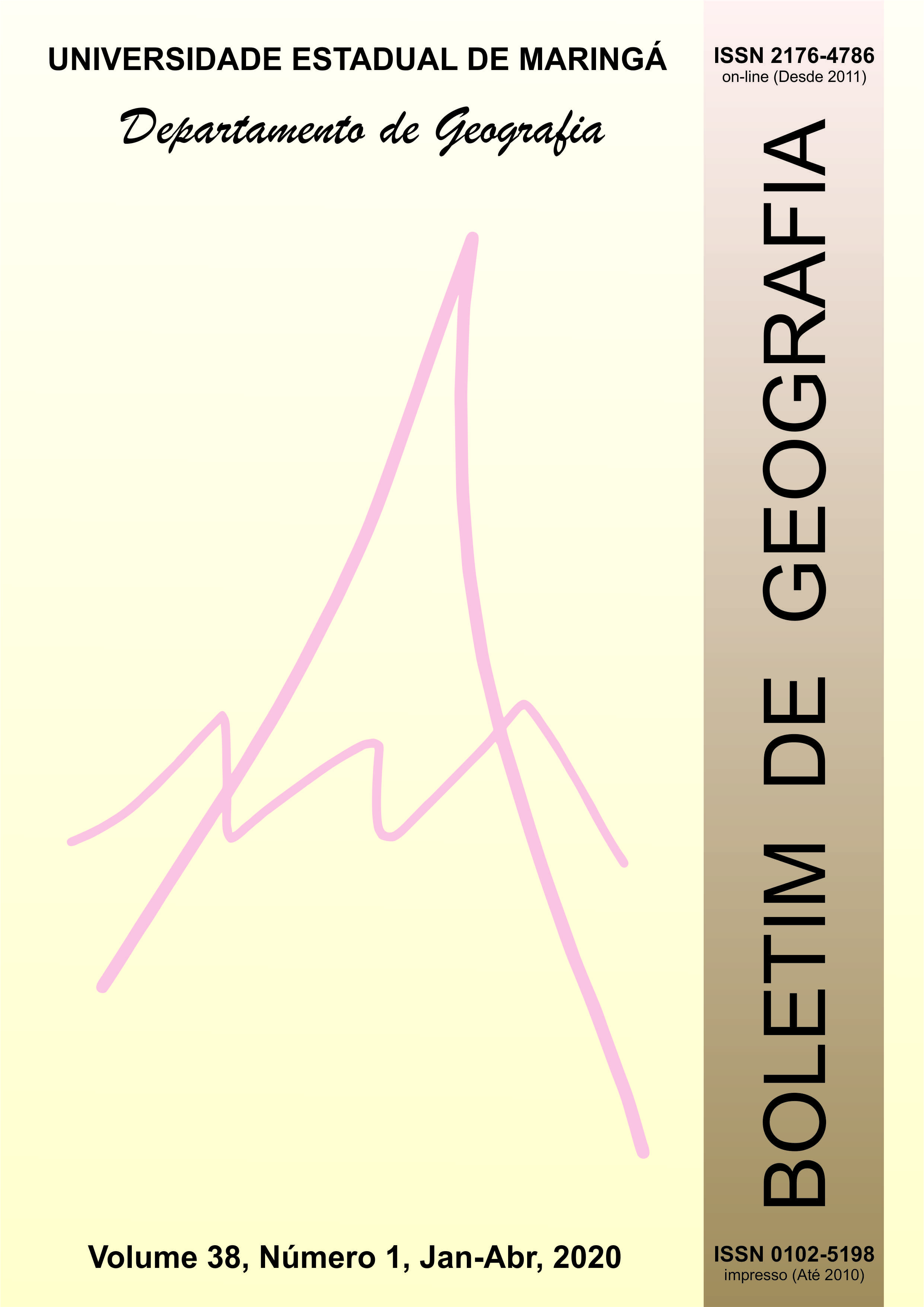(Re) significations of empirical along the history of Geographic knowledge: a dialogue in three moments
Abstract
The current article is about the history of Geography Epistemology – despite the interdisciplinary of its content – more specifically the meaning of its empirical cognition through the times for the geographical knowledge. For this purpose, it will be structured the text in three moments, which are compared and tangled. The first includes the medieval period and its predilection for the textual and apologetic element, based on fundamental premises of Christianity. In here, textual contents of different times are overwritten to the empirical element, aiming to equate the writing of the world to religious elements. The second moment is about the knowledge period known as Great navigations. New people and lands are unveil through Europe on it – mainly by the Spaniards and Portuguese discoverers – which by the empirical evidences of the new places, was obligated to question some trues from the medieval tradition strongly present in the fifteen and sixteen Century. At last it will be discussed about the trip of Alexander von Humboldt to the Spaniard America (1969 – 1832). Here, the wise Prussian will (re) signify the empirical upon a complex symbiosis between conventional scientific procedures, elements of German Romanticism, as well as the scientific input of Johann Wolgang von Goethe (1749-1832). It is important to mention that the article has as a fundamental premise the inherent relation between the kind of relevance given to the empirical and the historical moment in which such relevance gains its owns treats.
Downloads
O Boletim de Geografia está licenciado através da Creative Commons Atribuição 4.0 Internacional (CC BY 4.0).
Autores que realizam submissões ao Boletim de Geografia concordam com os sequintes termos:
- Autores retêm todos os direitos autorais e concedem à Revista direitos exclusivos da primeira publicação, com o artigo licenciado sob os termos da Creative Commons Atribuição 4.0 Internacional (CC BY 4.0).
- Após a publicação, fica permitido ao autor a republicação em qualquer outros meios de divulgação, desde que mencionada a fonte original.












